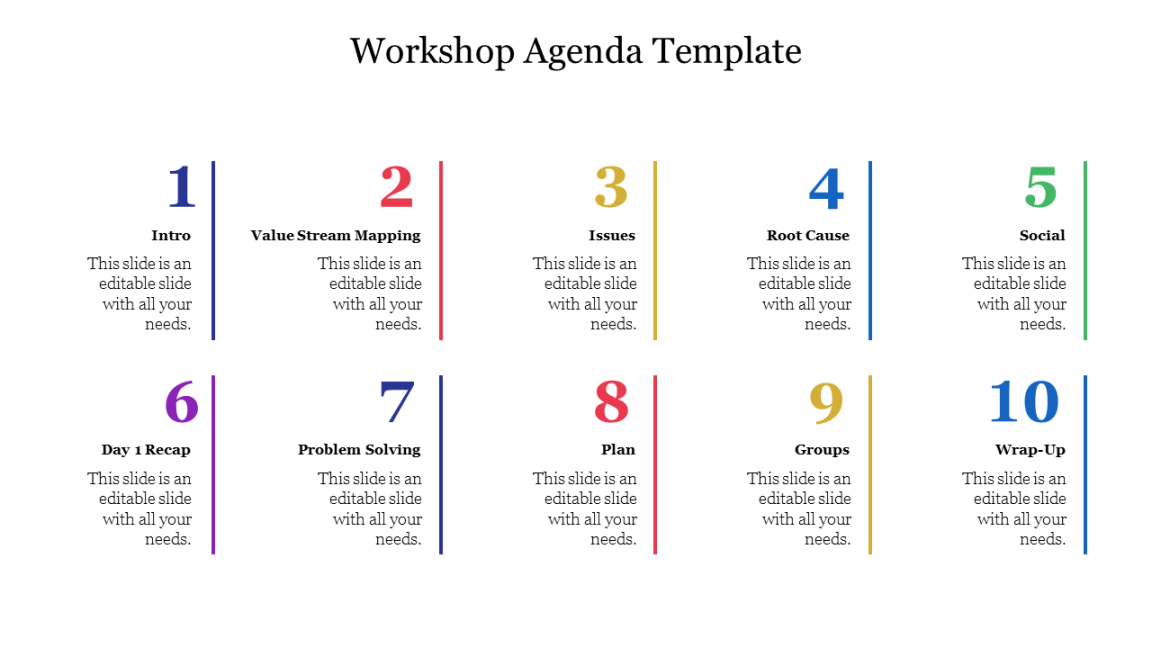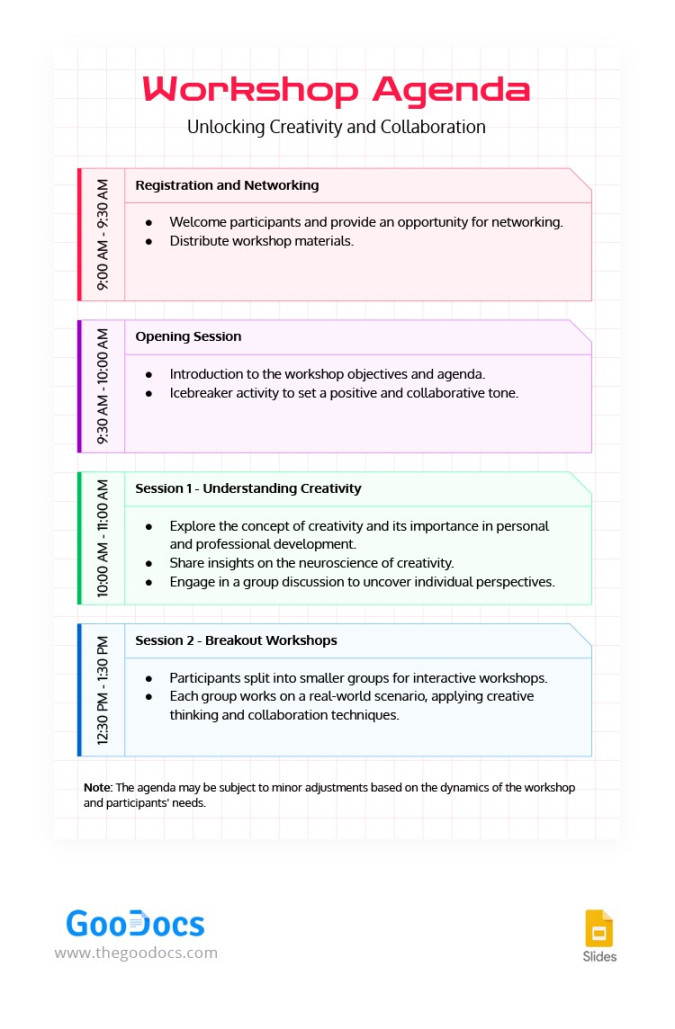A Workshop agenda Template serves as a crucial roadmap for any successful workshop. It outlines the key activities, timelines, and objectives, ensuring a smooth and productive session for both facilitators and participants. This guide will delve into the essential elements of a professional Workshop Agenda Template, focusing on design elements that convey professionalism and trust.
1. Clear and Concise Workshop Title:
The workshop title should be a concise and informative reflection of the workshop’s core focus. It should be immediately engaging and clearly communicate the value proposition to potential attendees.

Image Source: slideegg.com
2. Date, Time, and Location:
Clearly state the date, time, and location of the workshop. This information should be prominently displayed and easily accessible. For virtual workshops, include the platform used (e.g., Zoom, Google Meet) and any necessary login details.
3. Target Audience and Objectives:

Image Source: thegoodocs.com
Define the target audience for the workshop. This helps ensure that the content and delivery style are appropriate for the intended participants. Clearly state the overarching objectives of the workshop. What specific knowledge, skills, or behaviors do you aim to impart?
4. Detailed Workshop Schedule:
This is the heart of the agenda. Break down the workshop into distinct segments with clear start and end times.
Welcome and Introductions: Begin with a warm welcome and allow participants to introduce themselves.
5. Facilitator Information:
Provide brief biographical information about the workshop facilitator(s). This builds credibility and helps participants understand the expertise they will be gaining from the session.
6. Contact Information:
Include contact information for the workshop organizer or facilitator. This allows participants to easily reach out with any questions or concerns.
7. Logistics and Materials:
Clearly outline any logistical considerations such as parking information, accessibility requirements, or required materials for participants (e.g., laptops, notebooks).
8. Professional Design and Layout:
The visual presentation of the agenda is crucial in conveying professionalism and trust.
Use a clean and modern font: Avoid overly decorative or difficult-to-read fonts. Opt for professional fonts like Arial, Times New Roman, or Calibri.
9. Accessibility Considerations:
Ensure the agenda is accessible to all participants. This includes:
Large font sizes: Use a font size that is easy to read for all participants.
10. Regular Updates and Communication:
If any changes occur to the workshop schedule or logistics, communicate these updates promptly to all registered participants. This ensures everyone is well-informed and prepared for the session.
By carefully considering these elements, you can create a Workshop Agenda Template that is not only informative but also visually appealing and professional. A well-crafted agenda sets a positive tone for the workshop, builds trust with participants, and contributes to a successful and productive learning experience.